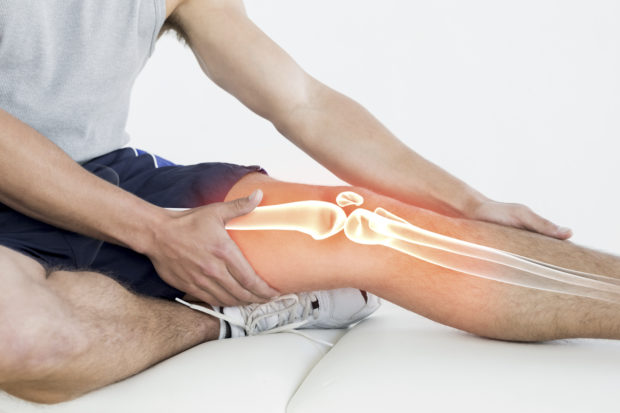The age you hit puberty could impact bone strength later in life

New research suggests that teens who start puberty later could have an increased risk of bone fractures when they are older. Image: iStock/Wavebreakmedia via AFP Relaxnews
New research in United Kingdom has found that children who start puberty later may have an increased risk of bone fractures and osteoporosis later in life.
Carried out by researchers at the University of Bristol, the new study looked at data gathered from 6,389 children taking part in Children of the 90s, a longitudinal research program carried out by the university which has followed thousands of children since their birth in the early 1990s.
The participants underwent six repeated bone density scans between the ages of 10 to 25 years to assess if there was a relationship between the timing of puberty and bone density throughout adolescence and into early adulthood. The findings, published in JAMA Network Open, showed that teens who started their pubertal growth spurt later did catch up with their peers to some extent, but they still had a lower than average bone density which persisted for several years into adulthood.
The researchers explain that peak bone mass at the end of the teenage growth spurts is considered to be an indication of the risk of bone fractures and the bone disease osteoporosis in adulthood. They added that the findings suggest that those who start puberty later should be advised on how to maximize bone mineral density and minimize its decrease in later life to help prevent these health problems.
“Our research adds to the evidence that children who mature later may be at increased risk of fractures as they grow. They may also have increased risk of the fragile bone condition osteoporosis in later life,” commented lead author of the study, Dr. Ahmed Elhakeem. “I would like to see more advice available for people who reach puberty later on measures they can take to strengthen their bones.”
The team added out that as the study participants are still only in their twenties, following up with them as they age will provide even more information about their risk of fractures in later life.
“The next steps should involve more detailed assessments of the long-term effects of puberty on growth and bone development,” Dr. Elhakeem said.
Alison Doyle, Head of Operations and Clinical Practice at the Royal Osteoporosis Society, who was not involved in the study, added, “This is important research that adds to a current gap in the evidence of understanding how bone density changes from puberty into early adulthood.”
“Understanding changes in bone density during puberty and the interventions that people can take for their bone health now to prevent osteoporosis and fractures in the future is an important step forward in finding a cure for this disease.” HM/JB
RELATED STORIES:
Could a video game be used to help develop emotional intelligence in adolescents?
Problematic smartphone use linked to poor academic grades, alcohol misuse, mental health problems